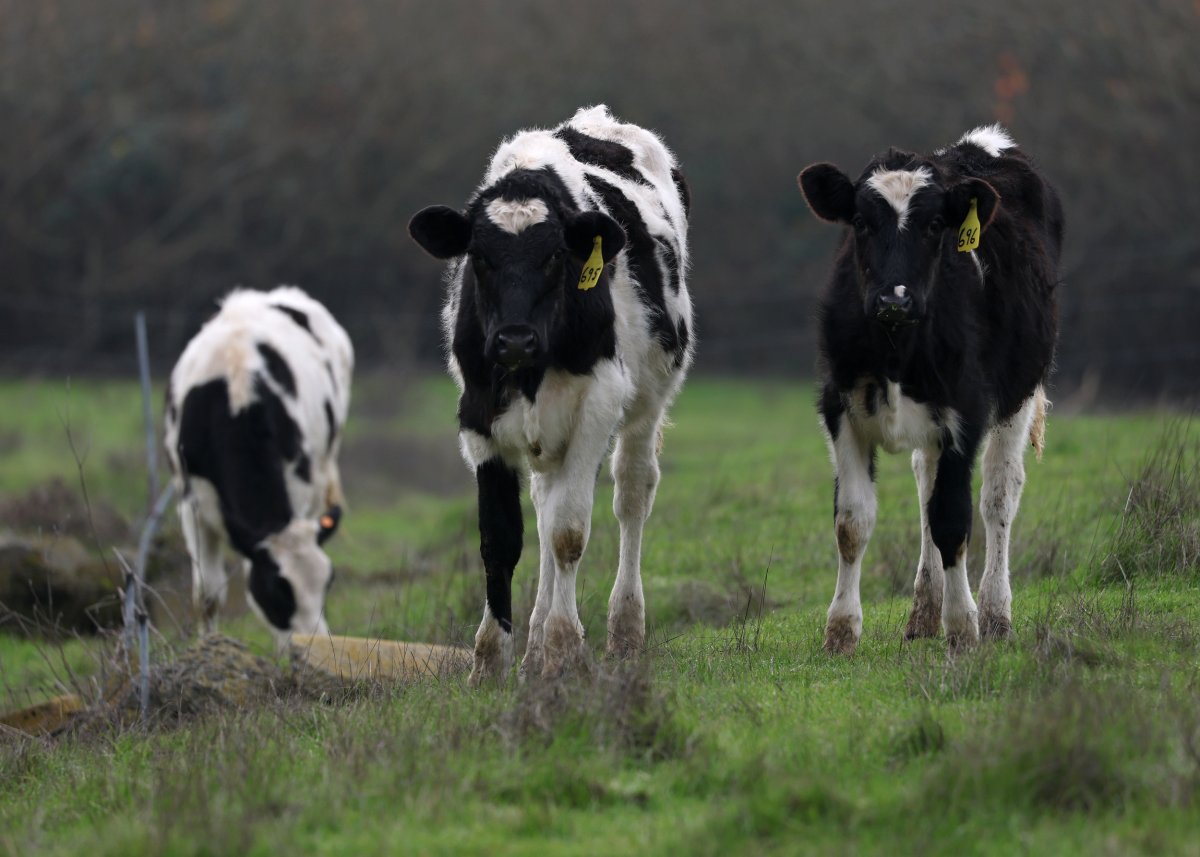Our Terms & Conditions | Our Privacy Policy
Scientists Worry About Undetected Bird Flu Infections
A recent Centers for Disease Control and Prevention (CDC) investigation found evidence of H5 bird flu infection in three U.S. veterinary practitioners who worked with dairy cattle, including one practitioner from a state with no reported infections.
The findings highlight the potential risks to those exposed to infected livestock and the need for improved surveillance measures.
Newsweek has reached out to the CDC for comment.
Why It Matters
Highly pathogenic avian influenza (HPAI) A(H5) infections have primarily been associated with poultry. The discovery of infections in cattle and related human cases suggests a broader risk of transmission to those working with dairy cattle.

Cows graze in a field on December 19, 2024, in Petaluma, California.
Cows graze in a field on December 19, 2024, in Petaluma, California.
Justin Sullivan/Newsweek
What To Know
The CDC’s study, published in its Morbidity and Mortality Weekly Report, was based on antibody testing conducted at a veterinary conference last September. Veterinarians in the study were practicing across 46 states and Canada. Of the 150 participants, 25 had worked with cows known or suspected to have bird flu, and three tested positive for antibodies to H5N1.
None of the three veterinarians who tested positive had reported any symptoms or had worked directly with infected cows. One of them had been in contact with poultry, but none had been exposed to sick cows in the areas that had reported outbreaks. One veterinarian who worked exclusively in states that had not reported any bird flu cases, including Georgia and South Carolina, was among those who tested positive.
The study found that HPAI A(H5) infections can occur in individuals without symptoms, suggesting that focusing only on symptomatic cases may underestimate the risk.
While it was not surprising to experts that bird flu could spread undetected, the discovery suggests that the virus may be present in more dairy herds and areas than previously acknowledged.
None of the 25 veterinarians who were aware of working with infected cows tested positive for antibodies, which could be explained by increased precautions. However, the three who tested positive did not report wearing masks or goggles, as these measures are not typically recommended when working with healthy animals in unaffected regions.
As for the source of infection, experts noted that veterinarians might have less direct contact with contaminated milk compared to farm workers who spend extended hours in milking parlors.
The CDC’s study further reinforced the necessity of expanded milk testing, an initiative the U.S. Department of Agriculture began in December that now includes 40 states. This testing aims to detect bird flu in bulk milk samples, and recent findings from Nevada revealed a new version of the virus, distinct from the strain previously found in dairy cows.
What People Are Saying
Dr. Seema Lakdawala, virologist at Emory University, told the New York Times: “The vets that we’ve talked to on these farms are involved in all aspects of care for these animals. They’re all over these cows, looking at everything.”
CDC spokesperson to Newsweek:“CDC is tracking the spread of the H5 influenza virus among animals and people in the United States; monitoring the virus, disease severity, and treatment effectiveness; and providing guidance to employers and workers who may be exposed about how to reduce risk of infection. The current risk to the general public remains low.”
What Happens Next
The CDC has recommended offering antiviral medications and molecular testing to asymptomatic workers exposed to infected animals. Safety measures such as goggles and respirators are advised when working in regions with confirmed infections.
Updated: 2/13/25 at 5:19 p.m. to include CDC comment to Newsweek.
[ad_1]
Images are for reference only.Images and contents gathered automatic from google or 3rd party sources.All rights on the images and contents are with their legal original owners.
[ad_2]



Comments are closed.